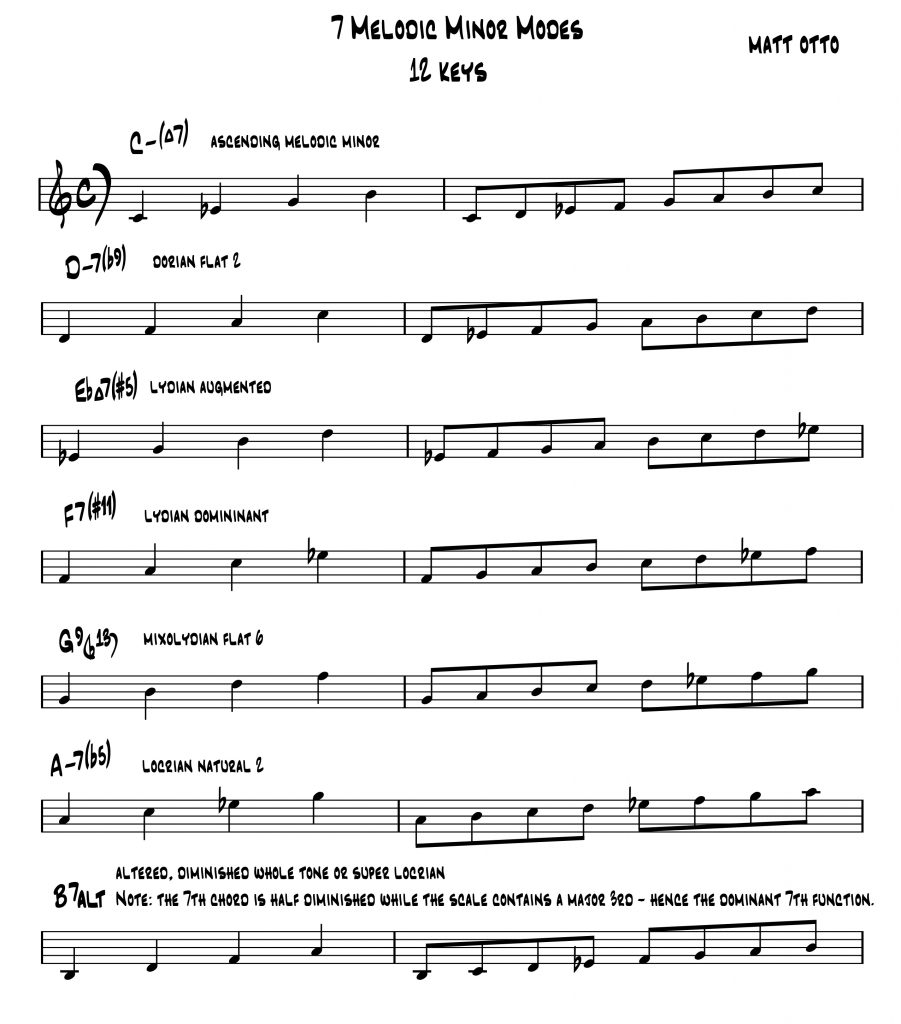

I’m using a C melodic minor over a B7 chord (the scale one half-step above the root of the dominant 7th chord, which is commonly referred to as the jazz minor scale). When it comes to diatonic harmony, understanding the modes is incredibly important for relating “pitch collections” to different chord qualities. This is how the melodic minor is typically applied over dominant 7th chords in modern jazz. So with that being said, let’s dive in to the 16 most important scales for jazz improvisation and make sure we know them. I think this is a healthier way to think about scales, and ultimately will help us become better jazz improvisers. These are frequently used in jazz improvisation and are derived from the modes of the major scale, the melodic minor scale, and the harmonic minor scale.These scales are most often used by David Baker and Barry Harris as a tool to teach jazz improvisation. There are three types of Minor scales to learn: Natural Minor scale, Harmonic Minor Scale, and the Melodic Minor Scale. Bebop scale is a term referring to common seven-note scales that have an added chromatic passing note. Meaning, note choice options we can play in any particular order, rather than a linear pattern to play. When practicing scales with both hands keep an interval of an octave between the left and right hand and although the bellow exercise has only a 2 octave span you can expand it to 3 and even 4 octaves. I like to think of scales as “pitch collections.”

These tips won't necessarily make learning any easier but they will deinitely make it a bit more fun. Here are a couple of tips that will help you with the process of learning. From major scales to minor scales, there are so many scales to learn on saxophone and it can seem really overwhelming.
#MELODIC MINOR SCALES ALTO SAXOPHONE HOW TO#
You still have to study the language and vocabulary of jazz in order to know how to appropriately apply these scales in your improvisation! The 3 Essential Tips for Learning Saxophone Scales. While we do not want to sound like we are playing scales when we improvise, it is nevertheless very important to know what notes will be consonant with each chord, which is why chord/scale theory is so important. Minor Scales: you can play either Melodic or Harmonic for your exam. These scales are important for all instruments to know. All Scales to be played either tounged or slurred. It doesn’t matter whether you play guitar, piano, saxophone, trumpet, bass, or the kazoo.
#MELODIC MINOR SCALES ALTO SAXOPHONE FULL#
For playing scales full range on saxophone, the notes after the spelled out scale are the low to high notes. Here is a list of the 16 most important scales for jazz improvisation and the harmonic contexts in which they can be used for improvisation. Major, Natural Minor, Harmonic Minor, & Melodic Minor Scales spelled out.


 0 kommentar(er)
0 kommentar(er)
